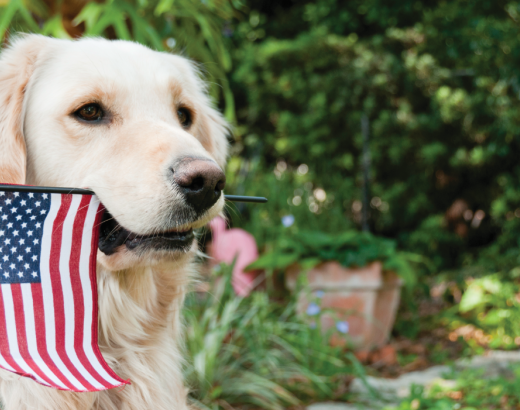From Rin Tin Tin to Lassie and Benji, the movies have long celebrated and reaffirmed the strength of the human-animal bond and the joy that companion animals bring to our lives. In this cherished tradition, a new movie that hits theaters tonight honors an even more special relationship – the bond between dogs and veterans, and the related ideals of selfless service and loyalty. The movie, A Dog’s Way Home, also takes on a timely concern that we grapple with in our work for companion animals: the downfalls of breed-specific legislation. A Dog’s Way Home, from Sony Pictures, is the first feel-good movie of the year and it tells the story of Bella, an adorable rescue dog, Lucas, the young man who adopts her, and his mother, Terri, a veteran. Lucas works at a Veterans’ Affairs hospital, Terri receives services there, and Bella begins to frequent the facility as well, providing comfort and companionship to the veterans. Unfortunately, Lucas and Bella are separated because the city of Denver, where the movie is based, has a breed-specific law that bans pit bull type dogs. Bella is transported to another state for her own protection, but the devoted dog doesn’t understand and braves 400 miles to find her way back to Lucas. This is a storyline that has compelled human interest for centuries: the anecdote of a devoted companion animal who faces adversity and travels long distances to reunite with their loving humans. But it was not the only reason I found myself so moved by A Dog’s Way Home. I was also struck by the film’s relevance to many of our most pressing animal welfare concerns at the Humane Society of the United States.

Shelby, the dog who plays Bella, was found in a landfill in Tennessee and brought to a dog shelter there, where the filmmakers discovered her. It is estimated that two million of the six to eight million animals in shelters and rescues each year are euthanized. Like Shelby, most of these pets are homeless through no fault of their own. Through The Shelter Pet Project, a collaboration between the HSUS, the Ad Council and Maddie’s Fund, we strive to make shelters and rescue groups the first place potential adopters turn to when looking to get a new pet, helping to ensure that all healthy and treatable pets find loving homes. We’ve leveraged tens of millions of dollars worth of free radio, television, print, and online and outdoor advertising in support of shelter and rescue adoptions through this partnership, helping to further drive down the percentage of healthy and adoptable animals euthanized in the United States. Recognizing the transformative value of the bond between dogs and veterans, the HSUS has also joined forces with the Department of Veterans Affairs to create Operation Hero-Animal Bond, a partnership to improve the lives of veterans and shelter animals through adoption. The program supports veterans in practical ways, by covering adoption fees and providing essentials for new pet parents such as preventatives, pet food, a leash and collar, toys and more. The program is operating in several locations and we hope to expand it nationwide. Above all, this collaboration celebrates the special bonds of devotion and service that unite veterans and companion animals, especially dogs. Finally, the villain in A Dog’s Way Home is Denver’s “pit bull ban.” Authorities threaten Lucas with impounding Bella, and possibly euthanizing her, if she is found outside their home. Wrong as this may sound, the fact is that many American localities have breed specific bans. But scientists, animal professionals and experts agree there is no evidence that one breed of dog is more dangerous than another. As we see in the movie, breed bans and restrictions, which often target “pit-bull” and “pit bull type” dogs, can be devastating for dogs and their owners. Such bans force dogs out of homes and into shelters, taking up kennel space and resources that could be used for animals who are truly homeless and in need. As John Thompson, executive director and CEO of National Animal Care and Control Association says, “Such bans also create an undue burden on pet owners who have otherwise demonstrated proper pet care and responsibility, and on the professional men and women in animal control who are placed in the difficult position of having to determine a ‘breed’ of dog, despite the fact that there is no breed standard for pit bulls.” Not only do the HSUS and Humane Society International have long-standing anti-breed-specific policies, but so do so many other major entities, including the American Veterinary Medical Association, and the U.S. Centers for Disease Control and Prevention. We hope that the release of A Dog’s Way Home will generate a bigger discussion about ending such bans, even as the movie reminds us why we so cherish the animals who share our homes and our hearts. Donate to the Operation Hero-Animal Bond Fund



